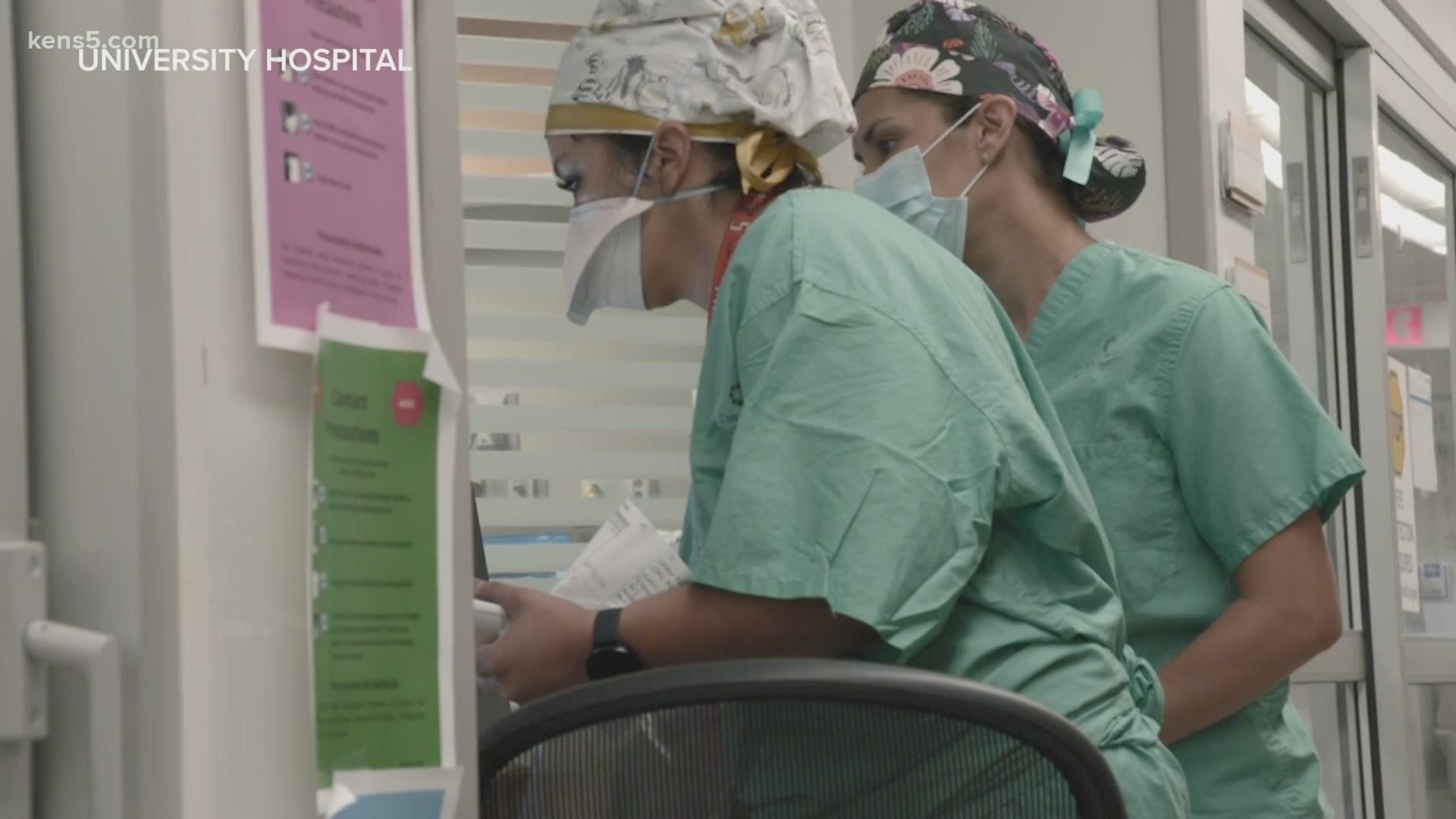SAN ANTONIO — Melissa Gonzalez is going to home to Harlingen for Thanksgiving. The University Hospital nurse did not opt-out of the holiday trip for reasons of family and heart.
"And I am going to go down to see my family for Thanksgiving because this will be the first Thanksgiving without the matriarch of my family, which is my mom, " she said.
Gonzales lost her mother during the COVID-19 outbreak. Her mom, Juanita, died from an unrelated issue. But the critical care nurse was still in the throes of handling patients suffering from the deadly virus.
"We never expected this many people, this many patients, this sick," she said.
The 38-year-old nurse works in the intensive care unit, where she helps treat the sickest of the sick. She describes some of the medical situations as terrifying.
Even for a nurse growing into her third year in the ICU, she could not believe the day six patients died because of the coronavirus.
"Six patients in almost a twenty-four hour period," she recalled. "We were left in an utter state of shock."
The nurse said she and her peers did not have time to process or cope with the impact of the surge of COVID-19 cases and its deadly yield.
"We would like to put it behind us, but unfortunately, we're preparing for another surge," she said.
Gonzales admits she and her peers are taking on a lot emotionally, physically, and psychologically.
UTSA psychologist Dr. James Bray said there is no large scale study on the mental health impact of COVID-19 on medical professionals. But he suspects they will need therapy.
"The challenge for them is that this is just been going on at such a high level for so long," Bray said. "They're just tired, particularly doctors and nurses who are working in the ICU.
Hospitals provide access to employee self-care. But many professionals delay taking advantage of therapy, putting duty first.
"At this point right now, for me personally, I don't have time," Gonzalez said. "I don't have time to care for myself, but it'll come."
Ignoring burnout, stress, and the impact of trauma even with professional training could still scar the frontline workers. The harvest may be PTSD, anxiety, depression, and substance abuse.
"They're going to need some time off just to recover," Bray said.
In the meantime, therapy through services like Teledoc is a healthy option, he said.
According to Bray, suiting up for the work they do is stressful. Then, healthcare workers have to deal with life at home.
Gonzalez knows her mother would have encouraged therapy. But one of their last conversations elevates her call to duty.
"On her deathbed, she told me---Melissa--God brought you into this career. You didn't pick it," Gonzalez recalled. "God picked you. So, you have to move forward. You have to be there for your patients."

